~Russia illegally detains 25,000 Kremlin prisoners
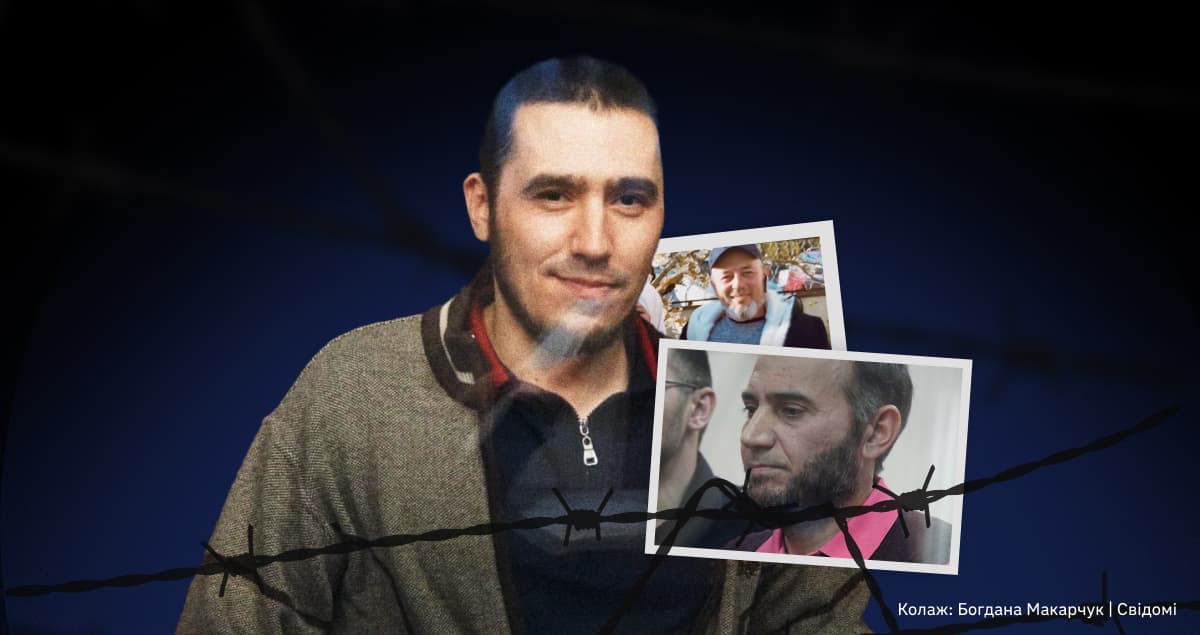
According to the Ukrainian Parliament Commissioner for Human Rights, Dmytro Lubinets, this is the number of civilians abducted by the Russian Federation.
The ZMINA Human Rights Centre has found that at least 67 prisoners require urgent medical care and may die unless they receive it.
During the full-scale invasion, the National Police began investigating the enforced disappearance of 8,800 people.
Russian Children's Ombudsman Maria Lvova-Belova claims Russia has illegally abducted over 700,000 children from Ukraine.
The Media Initiative for Human Rights has identified about one hundred places where abducted civilians are held.
The Mission of the President of Ukraine in the Autonomous Republic of Crimea (Qırım) confirms 218 illegally imprisoned Ukrainian citizens, 132 of whom are Qırımtatarlar.
During the full-scale war, 3,956 Ukrainian citizens, including 170 civilians, were returned to Ukraine.
Two Ukrainian Armed Forces Prisoners of War Sentenced in Russia for Alleged Terrorist Acts in Kursk Region
The 2nd Western District Military Court in Moscow has sentenced Ivan Dmytrakov and Vitalii Panchenko, servicemen of the 61st Mechanized Brigade of the Armed Forces of Ukraine, to 14 and 15 years in prison, respectively.
As reported by Zmina, the prisoners of war were accused of allegedly committing terrorist acts in the Kursk region. Ivan Dmytrakov is set to spend the first three years of his sentence in prison, with the remainder in a maximum-security penal colony.
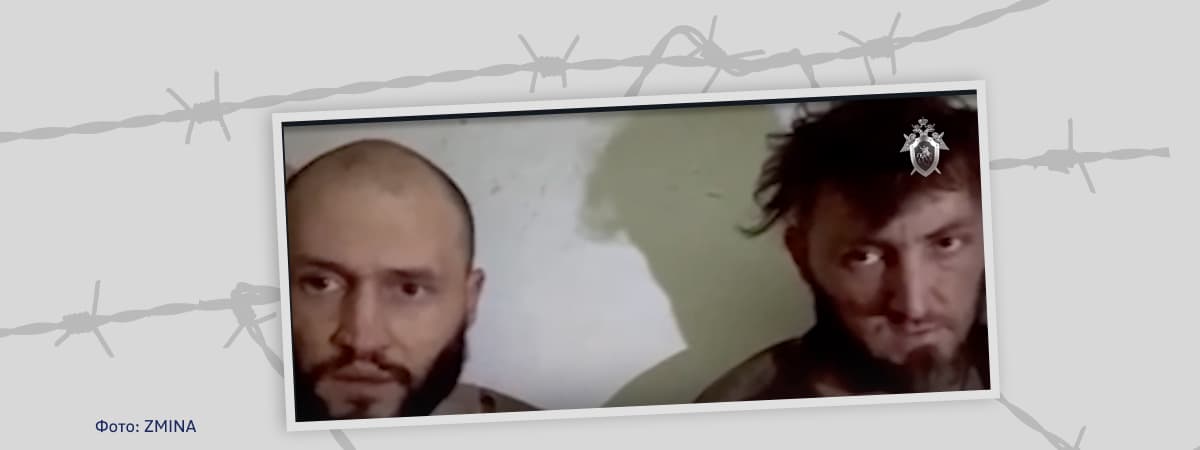
Russian authorities claim the Ukrainian soldiers illegally crossed the border into the Kursk region, fired at Russian military personnel, stole food from a Pyaterochka store in Sudzha, and forcibly deported two Russian citizens to Ukraine.
Dmytrakov and Panchenko were captured in August 2024 in the Kursk region. A Russian propagandist filmed a video with the prisoners, during which they were insulted and humiliated for their nationality. In early October, the soldiers were transferred to a pre-trial detention center.
Russians Deny Medical Treatment to Illegally Imprisoned Kherson Activist Iryna Horobtsova
Kherson-based civil society activist and volunteer Iryna Horobtsova, who was sentenced to ten and a half years in prison on charges of alleged “espionage” in August this year, has revealed in a letter to her sister Olena that she suffers from debilitating migraines but is denied medical care. Iryna is currently serving her sentence in Detention Center No. 1 in occupied Simferopol (Aqmescit).
Zmina reports.
In her letter, the political prisoner describes enduring severe headaches for over two years due to stress and lack of sleep, yet receiving no medical assistance or medication.
“The special pills I’ve been dreaming of for two years, along with all the sedatives I need for my shattered nerves, can only be transferred with a prescription. Local doctors are not permitted to write prescriptions inside the detention center. There are no pills available to me upon request. I cannot receive these medications in a parcel because I lack a prescription. Moreover, the medical service often refuses to accept medicines for me because of my gender. It’s a vicious circle,” Iryna writes.
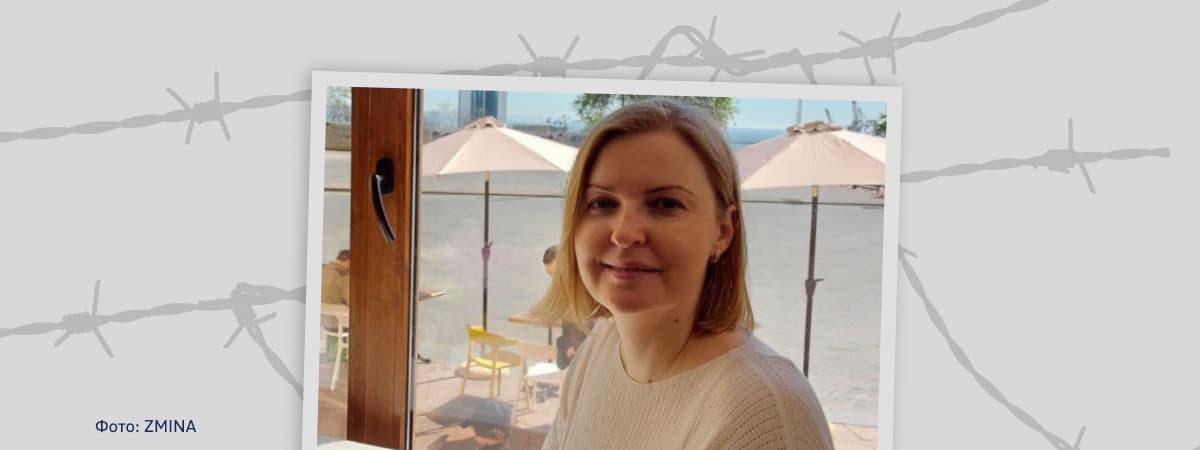
According to her sister, Iryna was diagnosed with a brain aneurysm before Russia’s full-scale invasion. Recently, she also suffered a heart attack. Despite her intense pain, the detention center’s paramedic ignored her pleas for help, leaving fellow prisoners to assist her as best they could.
Horobtsova is currently awaiting an appeal in her case. In August 2024, she was sentenced to ten and a half years in a maximum-security penal colony for allegedly “spying” for Ukraine. She only met her lawyer, Emil Kurbedinov, for the first time during her court appearance, as the Russian authorities classified her case and barred legal counsel from attending earlier stages of the proceedings.
The FSB abducted Horobtsova from her home on May 13, 2022. Initially, she was held in a pre-trial detention center in Kherson before being transferred to Simferopol Detention Center No. 1. Before the full-scale invasion, Iryna worked as an engineer for Ukrainian IT companies. During the Russian occupation of Kherson, she shared posts about life under occupation, photos featuring Ukrainian symbols, and referred to her apartment as the “home headquarters of the resistance.” Her last Facebook post called for the extradition of Azov fighters besieged at the Azovstal plant in Mariupol.
Political Prisoner Ali Mamutov’s Health Worsens After Transfer from Crimea to Russia
Zmina reports.
Ali Mamutov, a Crimean Tatar and defendant in the so-called “third Dzhankoy group of the Hizb ut-Tahrir case,” has experienced worsening health problems since being transferred from Crimea (Qırım) to Rostov-on-Don, Russia. The political prisoner, who suffers from hypertension, attributes the deterioration to inadequate medical care.
Mamutov’s health began to decline while he was held in the Simferopol (Aqmescit) Detention Center, where he was unable to receive his medications regularly. He reports that Russian authorities in Crimea deliberately delay the transfer of medications by 4–5 days, exacerbating the chronic health conditions of prisoners.
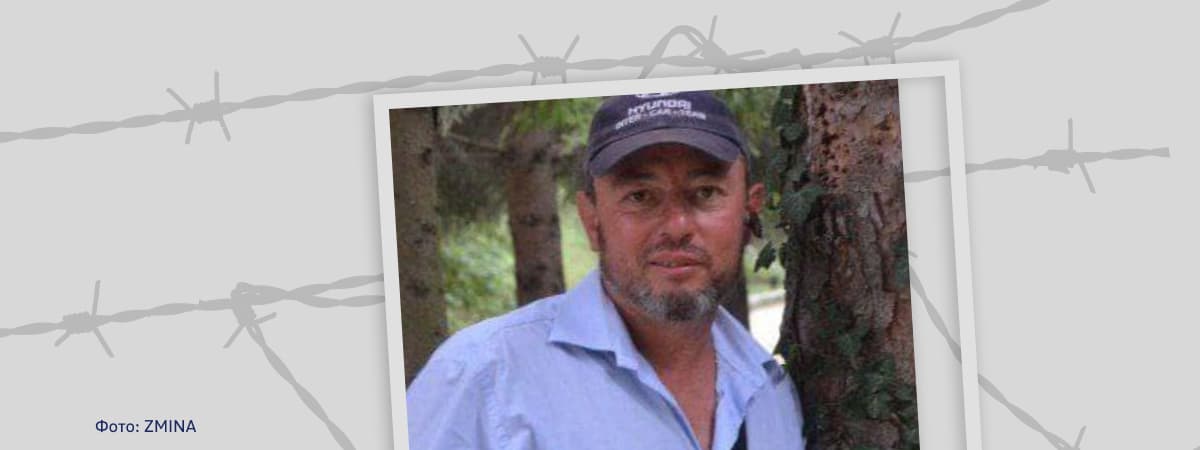
However, Mamutov noted a slight improvement in psychological conditions after his transfer to Rostov. According to his brother, the level of psychological pressure in Rostov is lower than in Crimea, as prison convoys reportedly recognize that the charges against him are “far-fetched.”
Notably, Mamutov’s verdict has yet to be announced, and court hearings in his case have been canceled without explanation. He is accused of participating in the Islamic political party Hizb ut-Tahrir, an organization banned in Russia but fully legal in Ukraine.
Russians Sentence Research Institute Employee Oksana Senedzhuk to 15 Years for Alleged High Treason
An illegal city court in temporarily occupied Sevastopol (Aqyar) has sentenced Oksana Senedzhuk, a chief specialist at the Research and Design Institute of Urban Planning, Architecture, Research, and Environment, to 15 years in a general-regime penal colony. She was accused of “high treason” for allegedly photographing Russian Black Sea Fleet ships for Ukrainian intelligence. In addition to the prison term, Senedzhuk was fined 200,000 Russian rubles.
Zmina reports.
Before the occupation of Crimea (Qırım), Oksana worked at the Sevastopol City State Administration. She actively participated in the Revolution of Dignity, openly expressed her pro-Ukrainian views, and opposed the war. She came under Russian persecution in 2022.
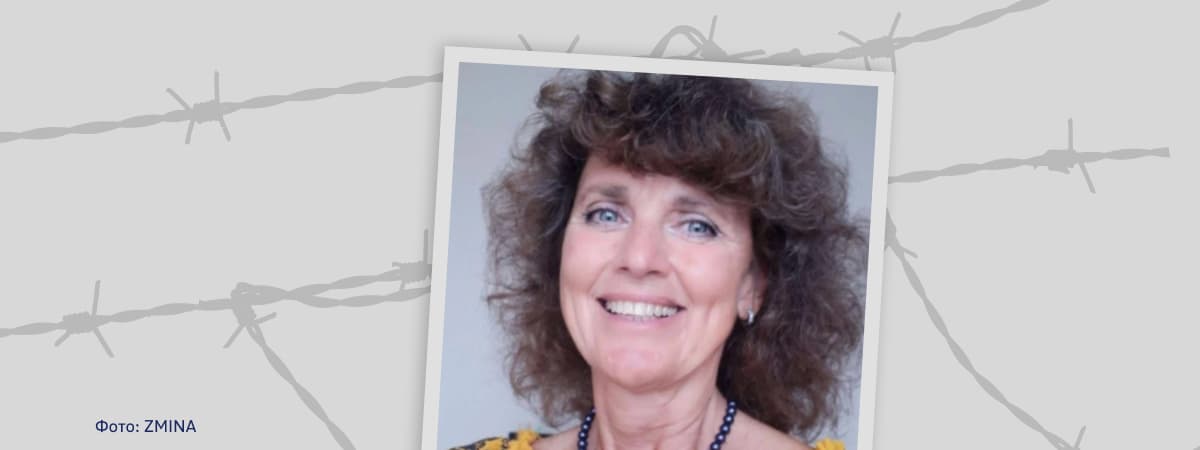
Senedzhuk endured repeated interrogations, and in August 2024, FSB officers searched her home in Sevastopol, after which she was detained. She has been in custody since August 15.
According to Russian investigators, Oksana Senedzhuk allegedly cooperated with a Ukrainian special agent who had previously worked in the administration of Sevastopol’s Nakhimovskyi district and relocated to Ukrainian-controlled territory after 2015. In March 2023, the agent reportedly instructed Senedzhuk to relay information to Ukrainian intelligence regarding the deployment of Russian Black Sea Fleet ships.
Azov Commander Lieutenant Colonel Denys Prokopenko Sentenced in Absentia to 24 Years in Occupied Donetsk
In occupied Donetsk, a so-called court has sentenced Colonel Denys Prokopenko, commander of the Azov Special Forces Brigade, to 24 years in prison in absentia.
Zmina reports.
The Russian authorities allege that in March 2022, Prokopenko ordered his subordinates to shell residential houses in the village of Staryi Krym (Eski Qırım) while civilians were present. This purportedly occurred during the defense of Mariupol, while Prokopenko was stationed at the Azovstal metallurgical plant.
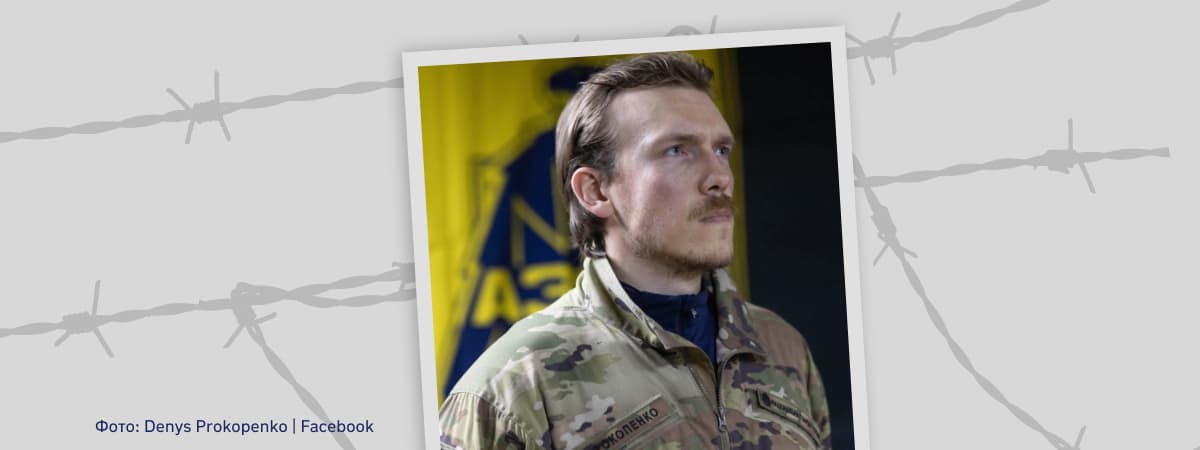
The charges against Prokopenko include attempted murder motivated by ideological and political hatred, cruel treatment of civilians, the use of prohibited means and methods of warfare, and intentional damage to property during the defense of Mariupol.
In addition to the sentence in absentia, Prokopenko has reportedly been placed on an international wanted list by Russian authorities.
Ukrainian Pavlo Levchenko Sentenced in Russia for Alleged Terrorism on Railroad in Occupied Crimea
In Russia, the Southern District Court in Rostov-on-Don has sentenced Ukrainian citizen Pavlo Levchenko to 22 years in prison for allegedly committing terrorist acts on railroad tracks in occupied Simferopol (Aqmescit). Levchenko is to serve the first five years of his sentence in prison, with the remainder in a strict regime penal colony. He was also fined 1 million Russian rubles.
Zmina reports.
Russian authorities charged Levchenko with multiple offenses, including high treason, assisting terrorist activities, committing a terrorist attack as part of an organized group, preparation and attempted crimes, illegal manufacture of explosive devices, and violating weapon handling regulations resulting in serious consequences.
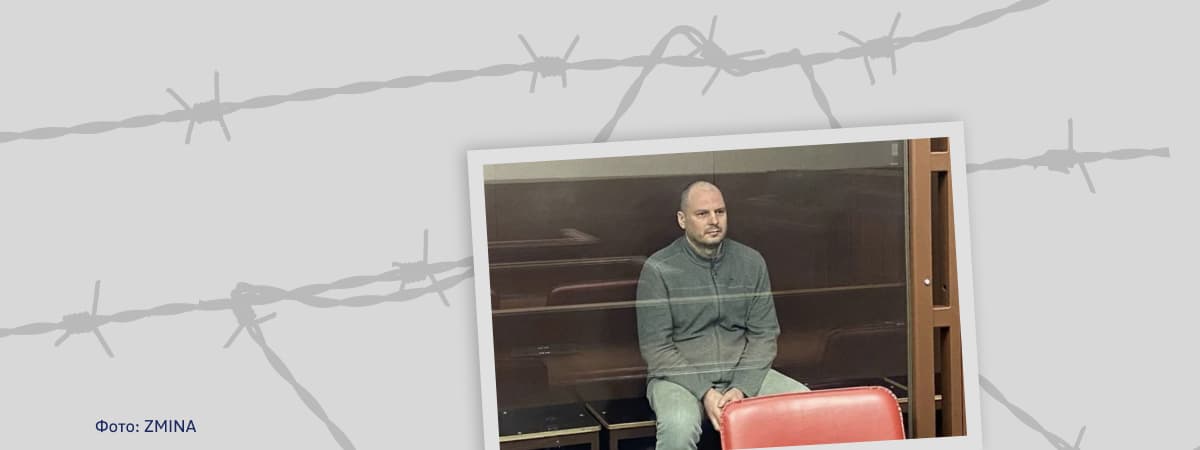
According to Russian claims, Levchenko allegedly established contact with an officer of Ukraine’s Main Intelligence Directorate in Zaporizhzhia on April 9, 2022, to facilitate further cooperation. A year later, he reportedly retrieved components for making explosives from caches and transported them to occupied Simferopol. There, he allegedly constructed two improvised explosive devices, placed them under railroad tracks, and detonated them as freight trains passed.
Russian authorities also allege that Levchenko planned additional attacks, including explosions targeting a fuel depot and railroad tracks.
Historian Seitumer Seitumerov Loses Five Kilograms Since Last Family Visit
Seitumer Seitumerov, a Kremlin political prisoner sentenced to 17 years in prison, shared details of his deteriorating physical condition and limited access to information during a recent family visit. This was the first time his family had seen him in over a year at the Vladimir prison.
Crimean Solidarity reports.
Seitumerov’s wife, Pakize Seitumerova, notes that her husband has lost five kilograms since their last extended visit, despite reportedly being “well-fed” in prison.
“His skin is pale because he rarely goes outside and suffers from a lack of vitamins,” Pakize said.
During the visit, the Crimean Tatar spent much of the first day asking about world events, as his only source of information was the television in his cell, which only broadcasts Russian channels.
Seitumerov now works six days a week in the prison workshop, making brushes for cleaning carpets. He receives a modest salary, which is deposited into his account.
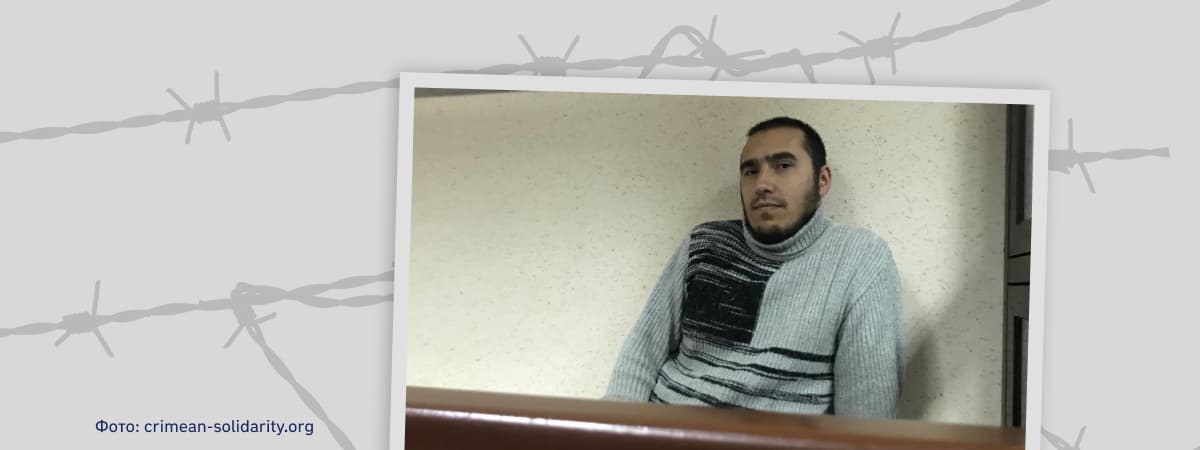
A historian by profession, Seitumerov was active in cultural and social work before his arrest in 2020. He led tours of historical landmarks in Bakhchysarai (Bağçasaray) and supported his community by attending politically motivated court cases in Crimea and Rostov-on-Don. He also organized events for the families and children of political prisoners.
On March 11, 2020, Russian authorities conducted searches in the homes of several Crimean Tatars in Bakhchysarai, leading to multiple arrests. In October 2021, the Southern District Military Court in Rostov-on-Don sentenced Seitumerov to 17 years in a maximum-security penal colony on charges of involvement with the Hizb ut-Tahrir organization, which is banned in Russia but legal in Ukraine. The case against Seitumerov and other defendants contained no evidence of weapons, explosives, or plans to commit acts of terrorism. Instead, it relied on audio recordings of discussions on religious and political topics in Bakhchysarai mosques.
Political Prisoner Muslim Aliiev Sent to Punishment Cell for 15 Days for Performing Prayer
Crimean Solidarity reports.
Crimean political prisoner and religious leader Muslim Aliiev was placed in solitary confinement for 15 days after performing the obligatory Muslim five-times-daily prayer (namaz).
The incident occurred when Aliiev did not interrupt his prayer to greet the head of the penal colony, who entered his cell during the ritual. In response, the prison administration sent him to a punishment cell, where he will remain until December 27, 2024.
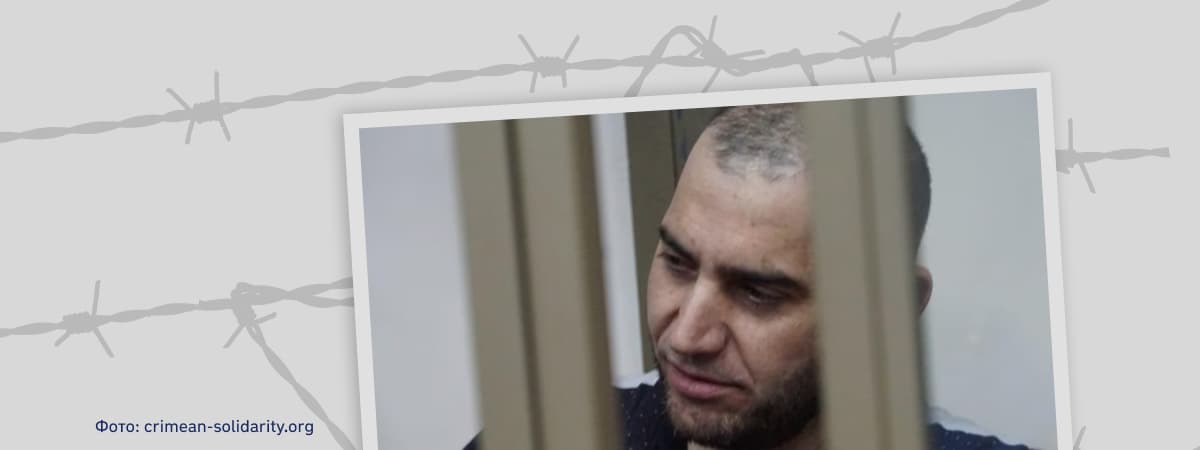
Muslim Aliiev has been an active member of the Muslim community in Alushta since 2005, playing a significant role in its religious and social activities. He organized funerals, performed the washing and burial rites for the deceased, and conducted marriage and naming ceremonies. He also helped organize Muslim holidays such as Oraza and Eid al-Adha and provided aid to those in need.
Aliiev was detained in 2016, accused by the FSB of involvement with Hizb ut-Tahrir, an Islamic political party banned in Russia but legal in Ukraine.


